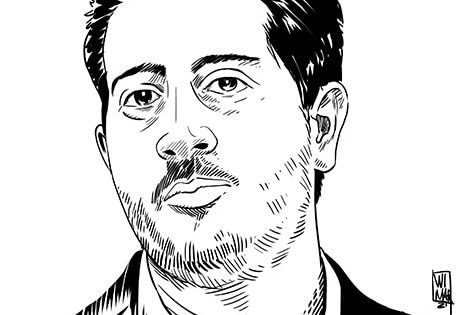(IAPA/IFEX) – The following is 21 August 2000 IAPA press release: MIAMI, Florida (Aug. 21, 2000) – The conditions under which independent journalists in Cuba have to work continue to be deplorable. Operating under constant pressure from the authorities, they battle on in their attempt to report on what is happening in their country by […]
(IAPA/IFEX) – The following is 21 August 2000 IAPA press release:
MIAMI, Florida (Aug. 21, 2000) – The conditions under which independent journalists in Cuba have to work continue to be deplorable. Operating under constant pressure from the authorities, they battle on in their attempt to report on what is happening in their country by posting their articles on an Inter American Press Association Web site that they themselves are not allowed to access.
In a series of articles posted each week on the Web site http://cuba.sipiapa.org, reporters from the Cuba Press news agency keep the world up to date on such topics as obstacles faced by the alternative press, sports, clothes, “extra” income, the movies, what Cubans read and who has access to the Internet.
They reported that on August 9, two men believed to be State Security agents pretending to be journalists entered an apartment in Havana, where Cuba Press had its office until late July, and carried off documents, office supplies, books and magazines. The items’ whereabouts remain unknown.
In a similar incident, journalist Luis Alberto Rivera Leiva, who runs another independent news agency, Agencia Libre Oriental, had his baggage searched and was told to hand over his identity papers to two police officers while he was waiting for a bus at the terminal in the eastern Cuban city of Santiago. He was the only passenger to be searched.
An article entitled “Leaping into the Dark” comments on the decision of Cuban-born long-jumper Niurka Montalvo, who is married to a Spaniard and has Spanish citizenship, to compete in the Sydney Olympics for the Spanish team. Her participation in the Games, however, was put in doubt following a protest by the Cuban government to the authorities in Madrid. More than 100 Cuban athletes have defected in the past 10 years.
The vicissitudes of the average Cuban in just obtaining decent clothing are spelled out in an article titled “To Dress Up Is a Luxury in Cuba.” A married couple with a young son earning the equivalent of 20 dollars a month decided to put three dollars aside each month “to see if we can have a better look by 2001, and change the clothes we now have that are more than 10 years old.”
“The Underground Island” is a piece that takes the reader to an underworld where the gap between shortage and access to goods disappears thanks to relatives sending money from abroad or engaging in the black market that involves supporters as well as opponents of the Fidel Castro regime. “There are a thousand and one ways to make a few dollars discreetly every day,” said one interviewee.
Cubans’ love of going to the movies is languishing. Old movie theaters have been shut down or have fallen into disrepair, even more are likely to close in coming years and no new ones are being built. “We soon learned the lesson – when the sign “Closed for Repairs” went up at a movie house, we knew that was the death sentence,” writes the author of a piece titled “We are Lost.”
The novel by Peruvian writer Mario Vargas Llosa “La Fiesta del Chivo,” a recent best-seller in Latin America, was brought to Cuba by “friendly hands.” Raúl Rivero, author of the article headed “Reading in Cuba,” will have the book in his possession for 48 hours towards the end of September. He is currently on a long waiting list. “I am number 62,” he says enthusiastically. But not everyone is so lucky.
“To surf the Web is pure science fiction for the overwhelming majority of Cubans,” declares the writer of “The Internet is for the Few and for Dollars.” He relates, citing the obsession of young print shop worker for the Internet, how much it costs in Cuba to get outside information. He pays five dollars an hour for access, or 60 dollars a month – equivalent to several months’ pay.
“The worst of it is spending the money,” the cyber junkie says, “but knowing that the government blocks any information it does not like.” An example of this is the IAPA Web site, on which these articles are posted, as well as the pages of a large number of foreign newspapers and other publications censored as being regarded as “enemy propaganda.”


